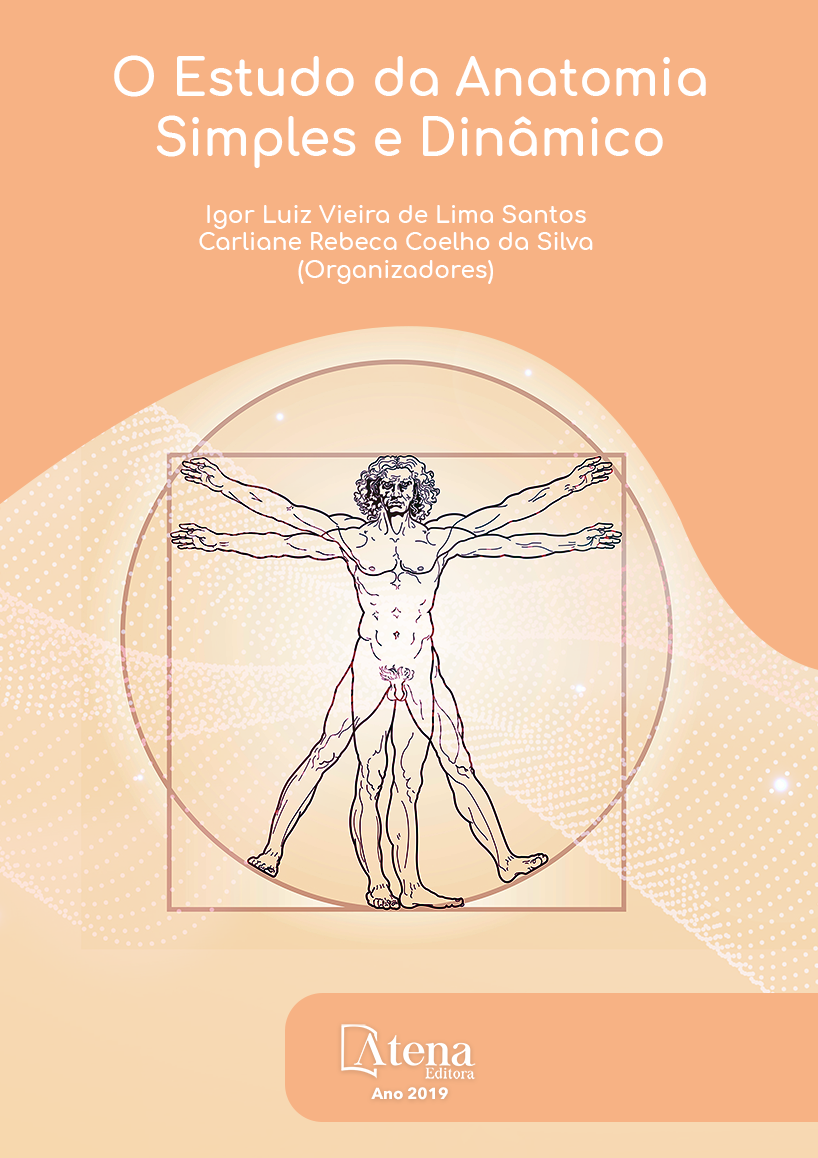
Avaliação dos aspectos anatômicos na arte sacra
INTRODUÇÃO: Na arte sacra,
muitos artistas buscam enaltecer características
da anatomia de acordo com o suplício ou forma
como morreu aquele mártir, retratando isso
em suas obras. Dessa forma, eles tornamse
padroeiros de uma determinada patologia
ou especialidade. Estas obras vão desde a
obra do Sagrado Coração de Jesus e da sua
crucificação, estendendo-se por diversos santos
da Igreja Católica. OBJETIVO: Identificar em
obras sacras quais apresentam características
anatômicas. MÉTODOS: Revisão de literatura
de caráter descritivo, em que foram observados
artigos científicos publicados no SciELO e
PubMed, nos últimos 10 anos, dos livros e
manuais da Igreja Católica, dos relatos através
da imagem e das descrições a respeito da morte
dos mártires da Igreja. RESULTADOS: Nos
registros canônicos, as igrejas cristãs possuem
mais de 10 mil santos e beatos registrados,
porém muitos deles não possuem uma vasta
biografia ou são menos populares. Dentre os
mais populares, aclamados como padroeiros
de determinadas profissões ou patologias,
observamos aspectos anatômicos retratados
nas imagens e esculturas de Jesus e de vários
santos, que têm representados a exposição
de chagas, perfurações, lacerações na pele,
escalpelamento, mastectomias, exérese dos
olhos, exodontias e ferimentos letais na área
pré-cordial. Observou-se que além dos dons
artísticos, os artistas preocupavam-se em
estudar detalhadamente a anatomia humana
para reproduzi-la o mais fielmente possível em
suas obras. CONCLUSÃO: Com isso podemos
observar que o estudo da anatomia não se
restringe aos laboratórios, estando também
contextualizadas com os suplícios sofridos
por diversos mártires da igreja católica, sendo
utilizada como motivação ao estudo anatômico.
Avaliação dos aspectos anatômicos na arte sacra
-
DOI: 10.22533/at.ed.32419250918
-
Palavras-chave: Anatomia artística; Religião; Santos.
-
Keywords: Artistic anatomy. Saints. Religion.
-
Abstract:
Introduction: In the sacred art, many artists seek to enhance
characteristics of the anatomy according to the way that martyr died, portraying this
in his works. In this way, they become patrons of a particular pathology or specialty.
These works range from the work of the Sacred Heart of Jesus and his crucifixion,
extending through various saints of the Catholic Church. Objective: Identify in sacred
works which ones have anatomical characteristics. Methods: Literature review in a
descriptive character, in which scientific articles published in the SciELO and PubMed,
in the last 10 years, of the books and manuals of the Catholic Church were observed,
reports through the image and descriptions about the death or characteristic of the life
of the martyrs of the Church. Results: In canonical records, Christian churches have
more than 10,000 registered saints and blessed, but many of them do not have a vast
biography or are less popular. Among the most popular, acclaimed as patrons of certain
professions or pathologies, we observe anatomical aspects portrayed in the images
and sculptures of Jesus and several saints, who have represented the exposure of
sores, perforations, skin lacerations, scalping, skinning, mastectomies, excision of the
eyes, exodontia and lethal injuries in the pre-cordial, hypogastric and femoral areas. It
was observed that in addition to the artistic gifts, artists were concerned with studying
and knowing details of human anatomy in order to reproduce it as faithfully as possible
in their works..Conclusion: It is possible to observe that the study of the anatomy is
not restricted to the laboratories, being also present in the sacred arts.
-
Número de páginas: 18
- Ingrid Ramalho Dantas de Castro
- Marcus Vinícius Quirino Ferreira
- Maíra Rodrigues Teixeira Cavalcante
- Gabriela Rocha Nascimento
- Izaura Vitória Sapucaia de Araújo
- Isabela Vieira Melo
- Anna Beatriz Gallindo Machado Lacerda Santiago
- Henrique Pereira Barros
- Ingrid Botelho Ribeiro


